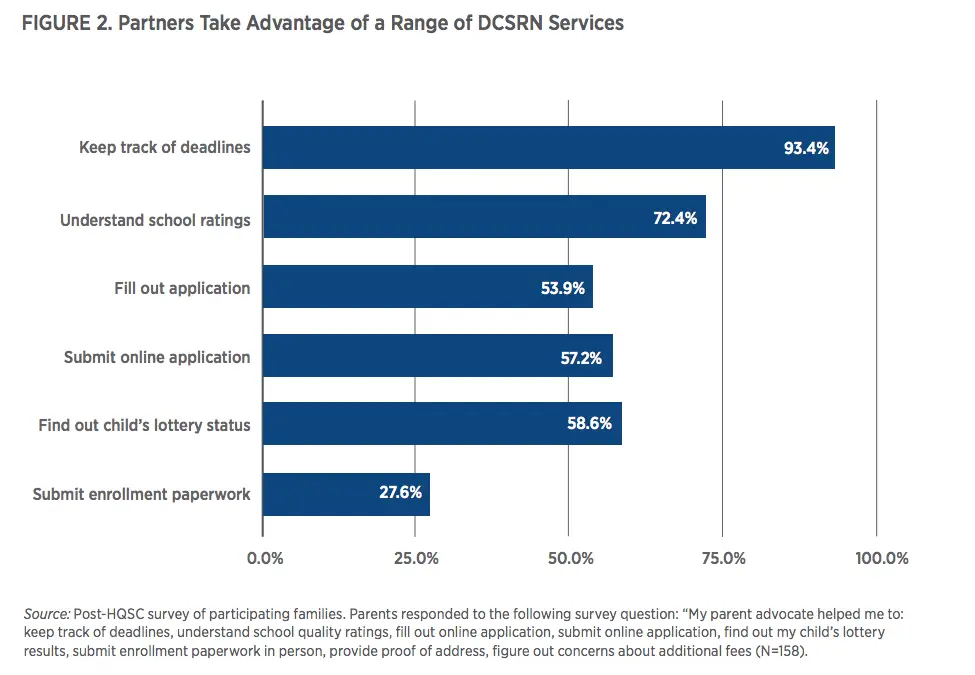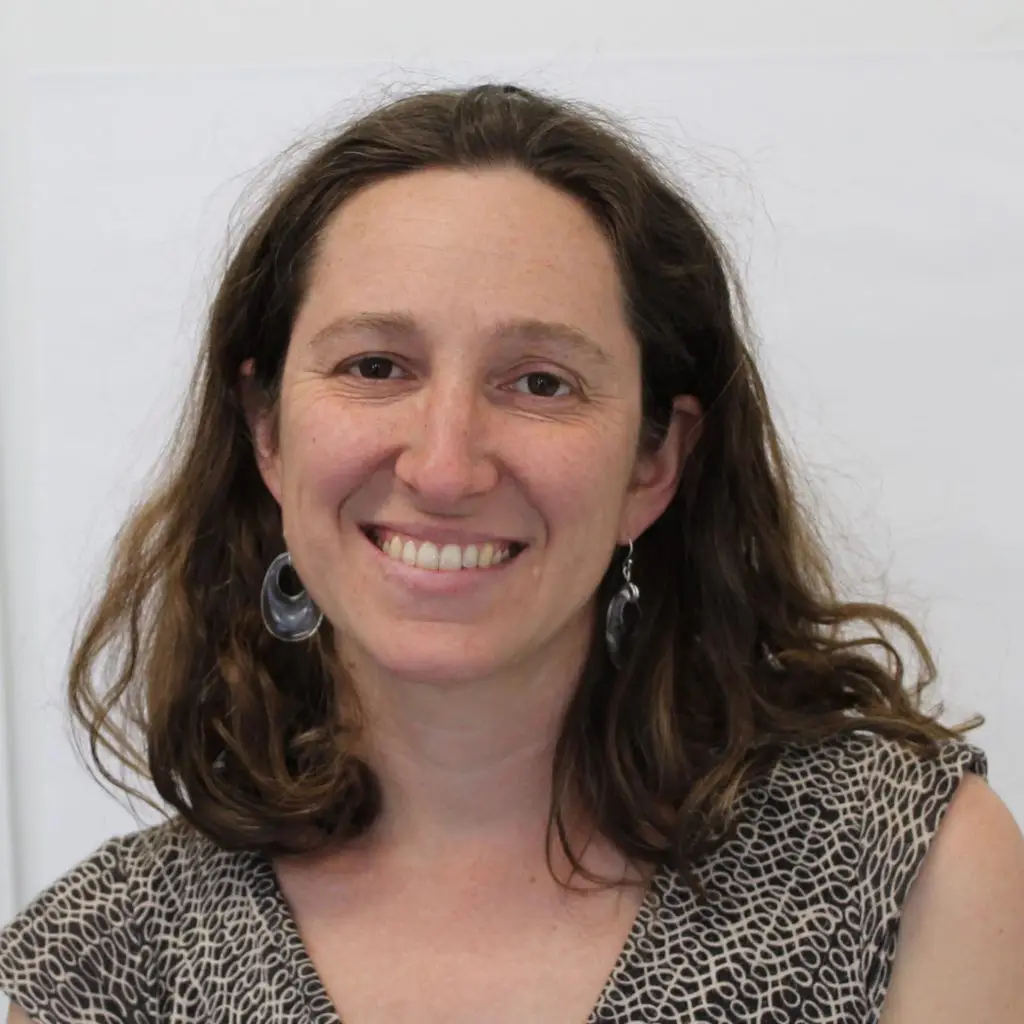The goal of school choice is to give all families — especially families in underserved communities — access to high-quality schools that work for them.
School systems will not reach that goal if they leave families to navigate these options on their own.
This has long been a priority for us at the Center on Reinventing Public Education. Our research has shown that even in high-choice cities, underresourced families are far more likely to enroll in their assigned neighborhood school, despite the fact that they are also less likely to be satisfied with that school assignment.
A growing number of organizations have emerged to change this reality. Our latest report focuses on one of the oldest of these organizations: DC School Reform Now, which started the High Quality Schools Campaign in 2011 to help level the playing field so all families can find quality schools that meet their needs.
As we reported in 2014 and 2017, the barriers families face are complicated, but it’s clear that the lack of useful information about schools is a key challenge, especially for low-income families. A number of cities produce local guides that have data on school performance, but others do not, and most leave out important things that parents need to know, such as the availability of special education services at individual school sites, or programs for students who are not native English speakers.
Washington, D.C., has many systems in place to help ease the barriers families confront in choosing a school. There are easy-to-use school guides and a common application process with a single deadline. But even so, families struggle to make sense of the information available, prioritize the many school choice options, and keep up with application and enrollment processes.
DC School Reform Now works to overcome these barriers by connecting families to parent advocates who help them find and apply to high-quality schools of choice. These advocates don’t wait for trouble to arise; they reach out to families, leveraging a network of community-connected partners, such as schools, day care centers and homeless shelters, to help families who may lack information get started.
As one parent told us, “[Before my advocate reached out], I didn’t even understand the process of what was going on. I thought my child had to go to the neighborhood school, so I was stuck.”
We spent three years following the efforts of DC School Reform Now’s parent advocates and learned that the support they provide can make the difference between whether families find success with school choice or not. As a parent we spoke with put it: “The first time [my parent advocate called], I felt like I wasn’t alone and if I had questions, I had someone to call and ask.”
The advocates contact parents during the start of the school enrollment period in December and persistently follow up until applications are due in February and March, staying in touch in case issues come up during the enrollment process. They track down information about extracurricular activities, school culture or special education programming — information that can be difficult for parents to find unless they call individual schools or use informal networks. And the advocates provide virtual tours that enable parents to get a feel for the intangible aspects of a school without leaving their homes.
The work of parent advocates exemplifies what sociologist Annette Lareau calls a “cultural guide” — a person who helps decode the institutional rules. If access to cultural knowledge and the confidence to navigate institutions are key sources of inequality, as Lareau suggests, then remedying these gaps must be a policy priority.
A growing number of organizations have recognized this need. In 2015, DC School Reform Now was one of three navigator organizations operating around the country. Now, four years later, we’ve identified 10 such organizations operating across 13 cities.
The specific mission and focus of these organizations vary. But all of them build one-on-one relationships that enable them to be the shoulder families can lean on when they have questions or need assistance. As one school leader told us, “They bridge the gap between the counselor, the teacher and the parents.”
However, there’s a long way to go before this kind of support becomes available to all families who might benefit from it.
Over time, the number of families DC School Reform Now touches has grown — from 184 families in 2011-12 to more than 1,100 families annually by 2017-18. But even with that growth, the organization serves only a tiny portion of families who might take advantage of its help. Last year, almost 45,000 children under the age of 18 lived in Wards 7 and 8, where more than 1 in 4 households with children live in poverty.
Like many nonprofits, DC School Reform Now relies on philanthropy to fund its services. Navigator organizations in other cities are experimenting with other business models. In New Orleans and Boston, EdNavigator offers its services to families as a job benefit. While this provides a sustainable funding source, it also misses some families who might not have stable employment.
School officials in Houston have found these services so vital that they sometimes fund them directly. Families Empowered steps in when a charter school network is hoping to open a new school. It conducts focus groups and surveys with community members to help school leaders understand what kind of model they would like to see. This support helps increase the likelihood that the new school will be a good fit for the community.
We will continue to follow the efforts of organizations like Families Empowered, DC School Reform Now and EdNavigator, because underresourced families cannot always navigate school systems alone.
The blog originally appeared in The 74.






